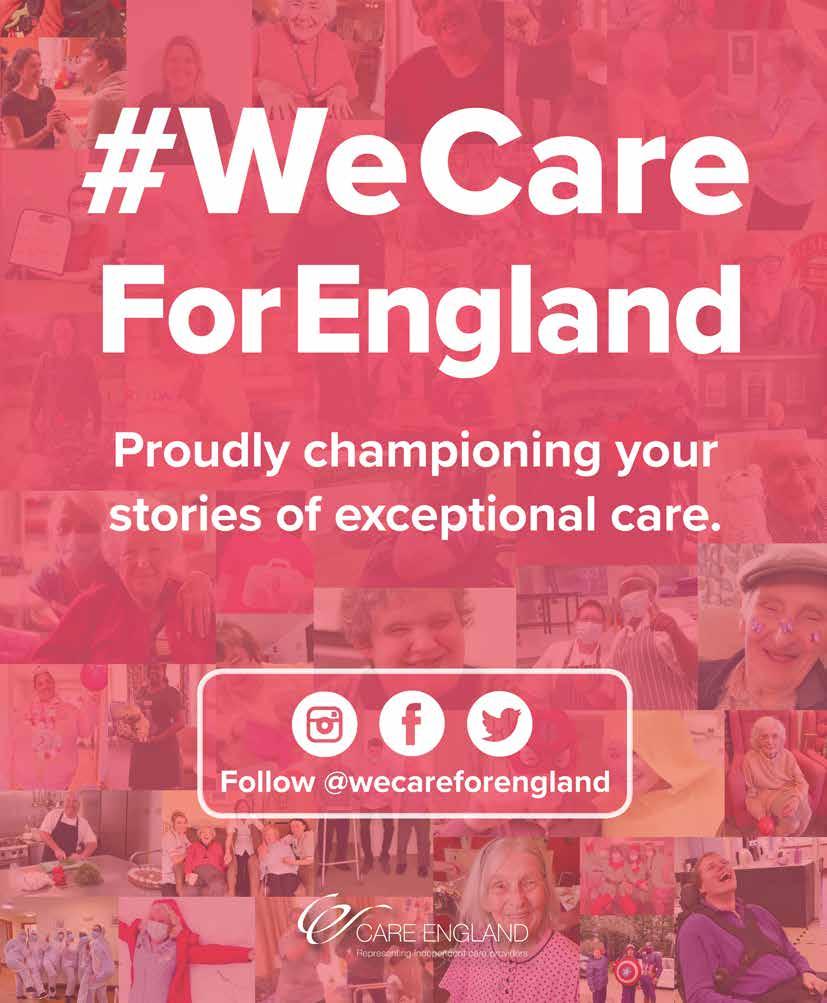We’ve seen too many times over the past few years that people with a learning disability and autistic people are not getting access to the right care. I’ve recently been appointed as lead for a programme of work focusing on transforming the regulation of services for people with a learning disability and autistic people. I want to share my early thinking on the programme and use this column throughout the year to keep you updated. In October 2020, we published our review into the use of restraint, seclusion and segregation – ‘Out of Sight: Who Cares?’. Throughout this review, I listened to people’s experiences of restrictive practices and heard how they were failed by the health and social care system. They often reached out for help and didn’t receive it, or the help they received did not meet their needs. Their passion for change reignited my commitment to support people with a learning disability and autistic people to get not only the care that they need, but the life that they deserve. This review, together with Professor Glynis Murphy’s review into CQC’s regulation of Whorlton Hall, made a number of recommendations for CQC, which we have already started taking forward. You can read more in a recent blog by Kate Terroni, Chief Inspector of Adult Social Care. Despite the Transforming Care programme, too many people with a learning disability and autistic people are still living in hospitals and there needs to be more decisive and collective action to bring about lasting change. We can, and we should, do better. There has been some progress in bringing these issues to light; but this has not achieved the change we all want. We need to shift the focus to people getting personalised support from skilled staff in their own communities when they need it. We are acutely aware of the pressures and know this is not easy to get right. For example, there are huge workforce challenges to overcome, but we are up for the challenge of working with others in the system to achieve this. I’ve spoken before about our work on Closed Cultures – this is now about implementing and operationalising the work. Throughout our engagement with people who use services, the discussion often returned to – how are you going to use regulation to make a difference? What’s within your power to lever change? This will be our focus, to both improve the way we monitor and inspect services and to use the full scope of our regulatory powers, to make sure the quality
Inside CQC D E B B I E
I V A N O V A
Debbie Ivanova, Deputy Chief Inspector of Adult Social Care at the Care Quality Commission (CQC), explains how a collective effort is key to improving support for people with learning disabilities and autism. of care in services for people with learning disability and autistic people is good. We have started at pace, and right now, we are refining our methodology by learning from our work on Closed Cultures, including ensuring our reporting process is fit for purpose. CQC cannot do this alone and we don’t want to. We need everyone in the health and care system to work together to make this happen; our partners in NHS England and the Department of Health and Social Care, commissioners, local government and those providing care in these services. We’ve already had some productive conversations about how best to do this – and the renewed focus on Transforming Care and Building the Right Support gives us an opportunity to make a collective step change this year. We’re currently developing the focus of the programme, so far it fits into three key areas.
REGULATED AND REGISTERED We’ll be ensuring that our newly updated Right Support, Right Care, Right Culture is being used by providers across the board. This is the policy which describes what we expect good care to look like for autistic people and people with a learning disability, covering registration through to inspection. It is about ensuring people have the right model of care and are going into a service that meets their individual needs, whether that’s in adult social care, primary medical services or a hospital.
TAKING ACTION We want to make sure we respond quickly and appropriately where services are not caring for people in line with good practice. We’ll be reviewing our approach to inspections of services for people with a learning disability and autistic people across the organisation. We’ll begin with a review of all hospital settings where our evidence shows there are the highest risks to keeping people safe and respecting their human rights. We will put people’s experience at the heart of our inspections.
PATHWAYS AND HEALTHCARE This workstream will look at access to services and what happens to people as they move between health and care services, focusing on choice and consent whether they live in regulated settings or in the community. We will work with local systems to identify commissioning gaps but also seek out best practice models. Then, alongside examples from our inspection programme, we will share this learning widely. We’re in the very early stages of exploring this work and will keep you updated. At the programme’s core, it’s about making sure people with a learning disability and autistic people receive the right support, at the right place, at the right time.
Debbie Ivanova is Deputy Chief Inspector of Adult Social Care at the Care Quality Commission. Share your thoughts and feedback on Debbie’s column at www.caremanagementmatters.co.uk CMM March 2021
7



